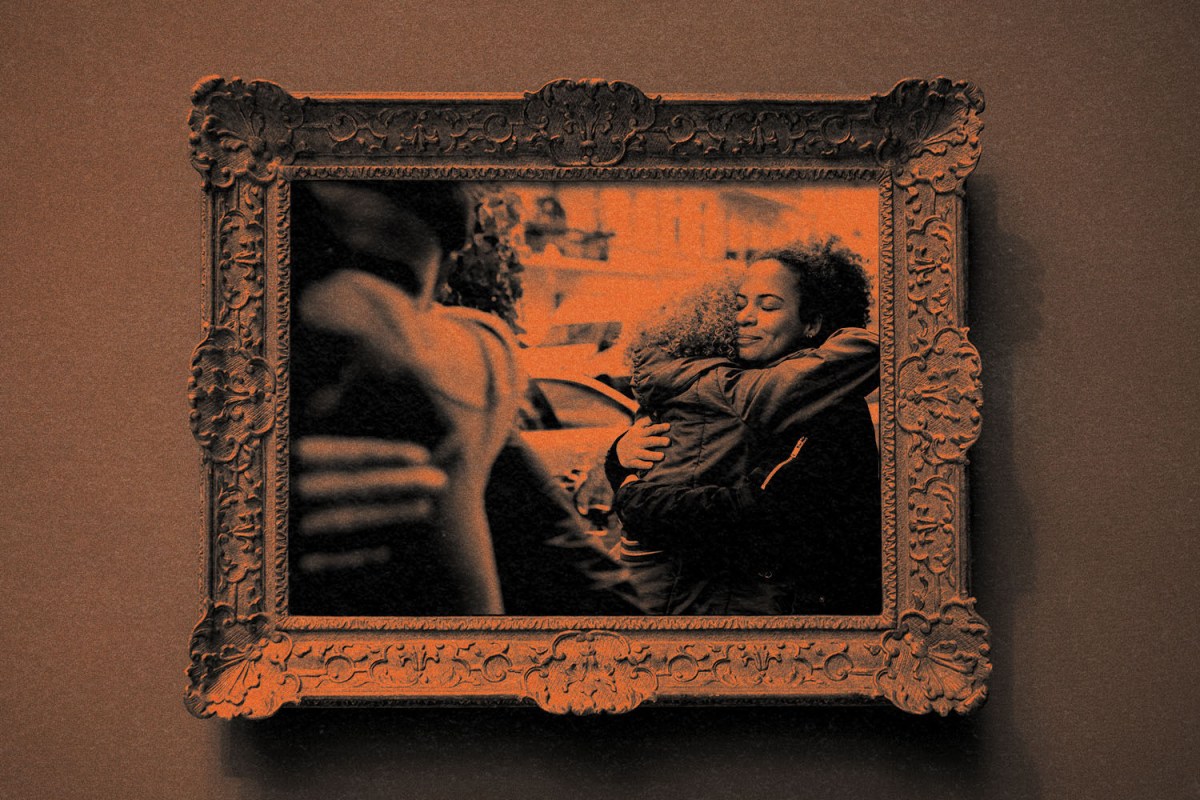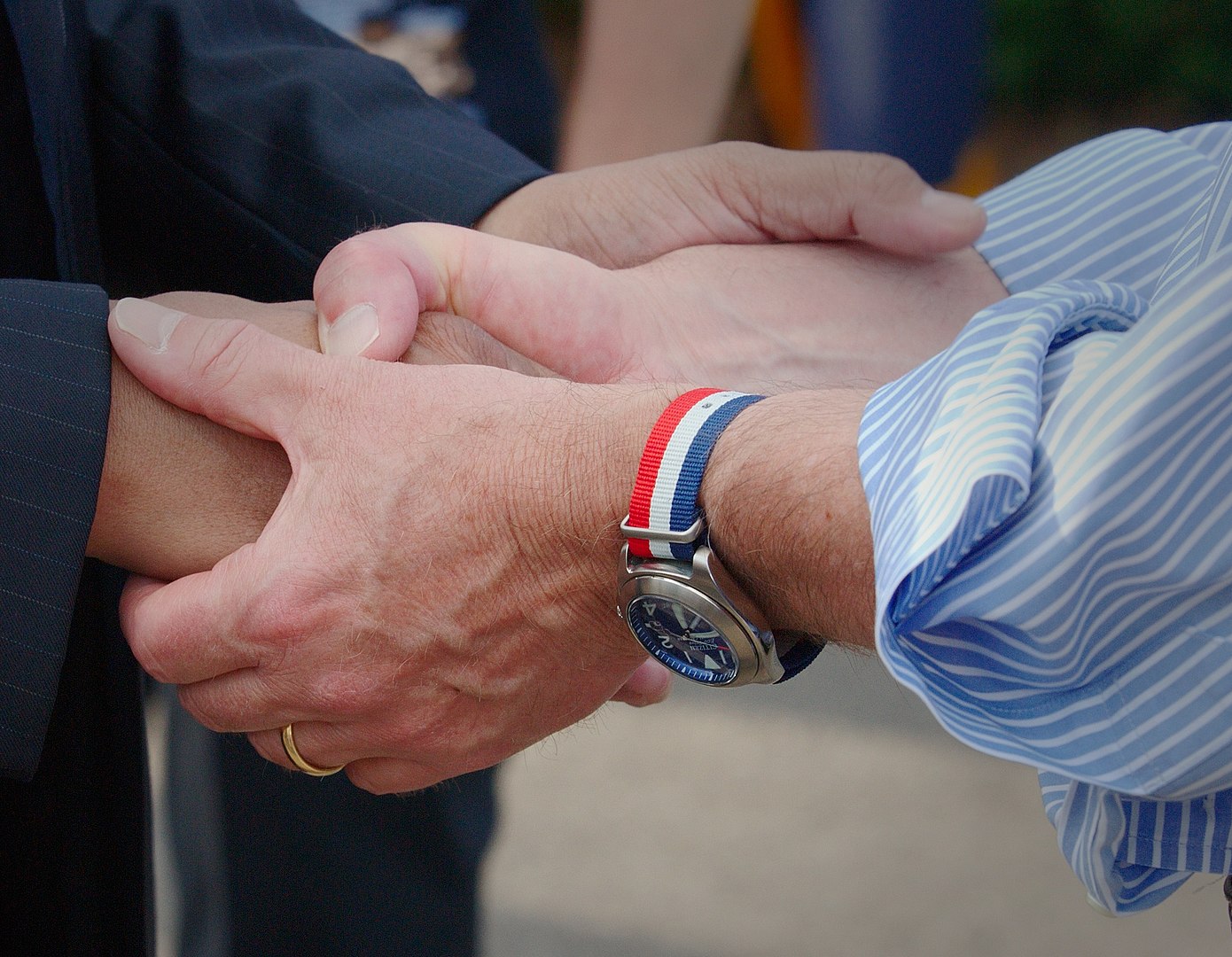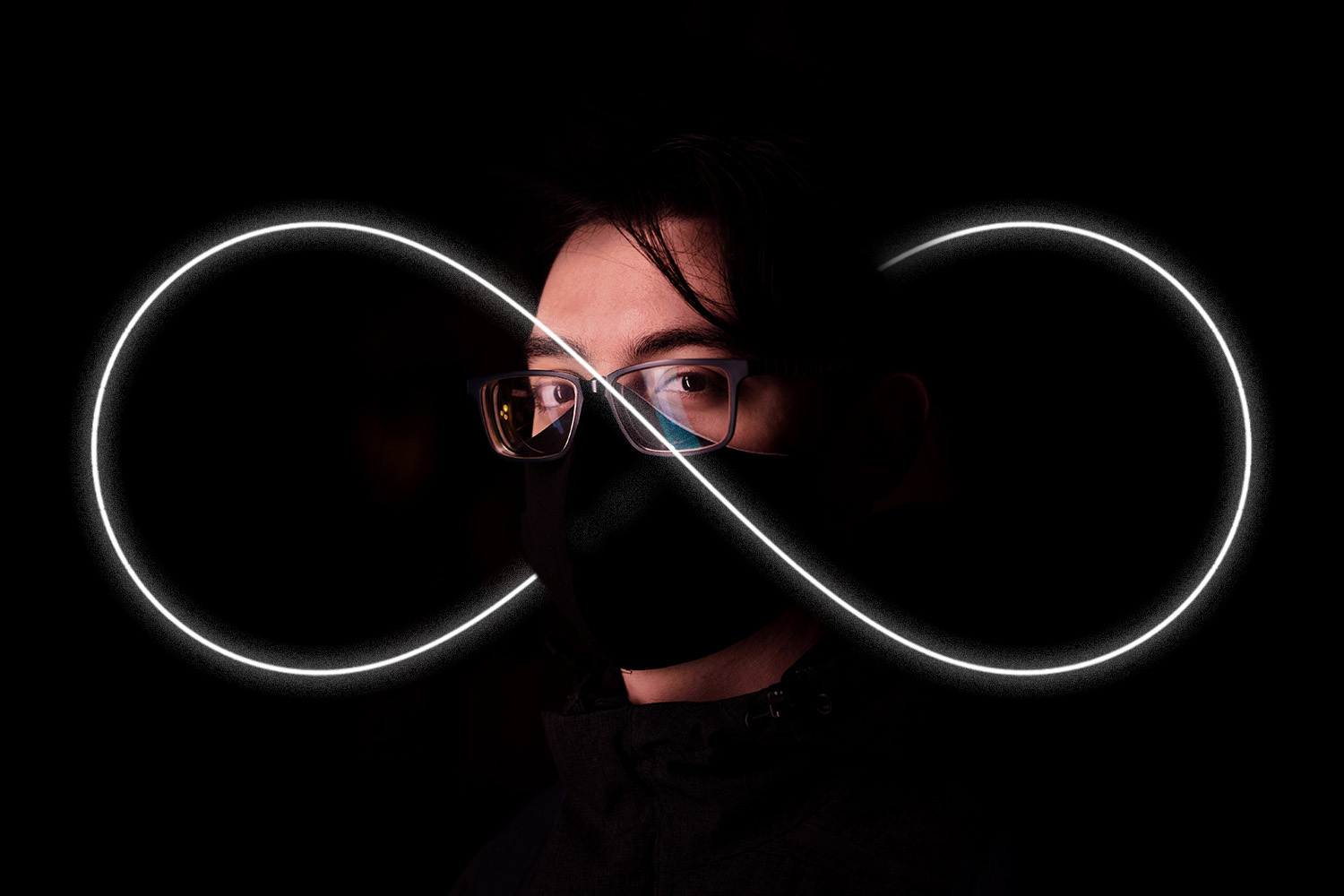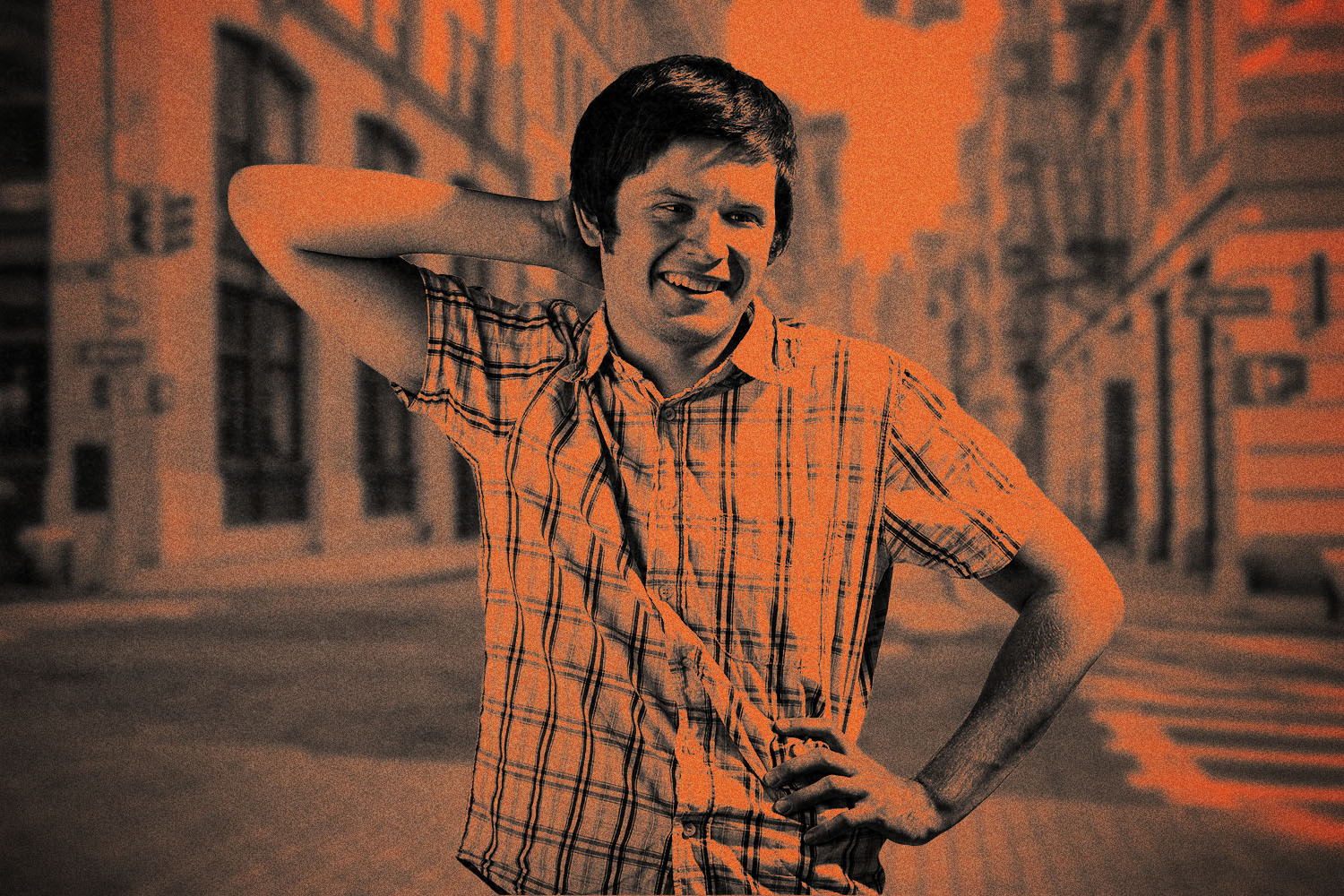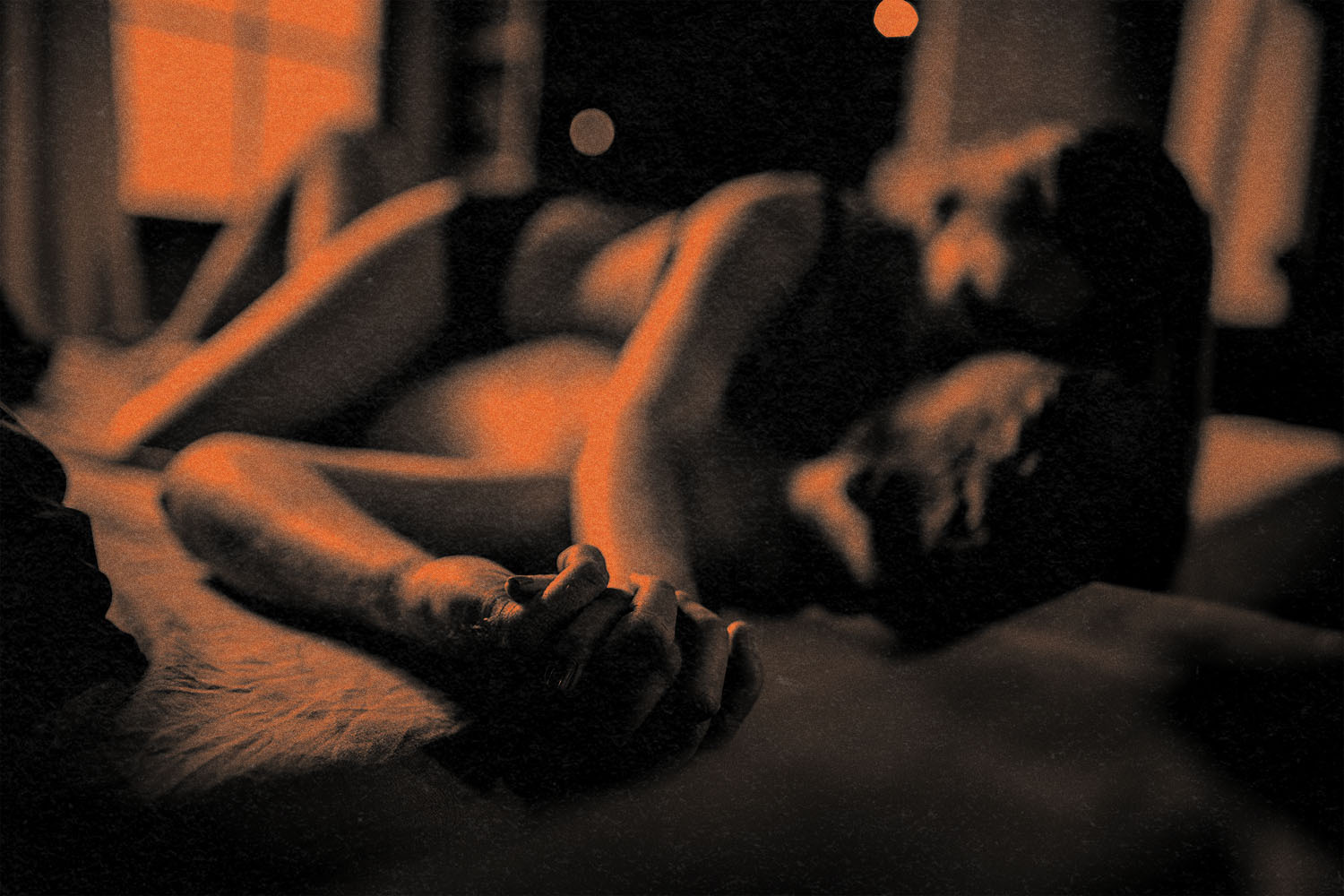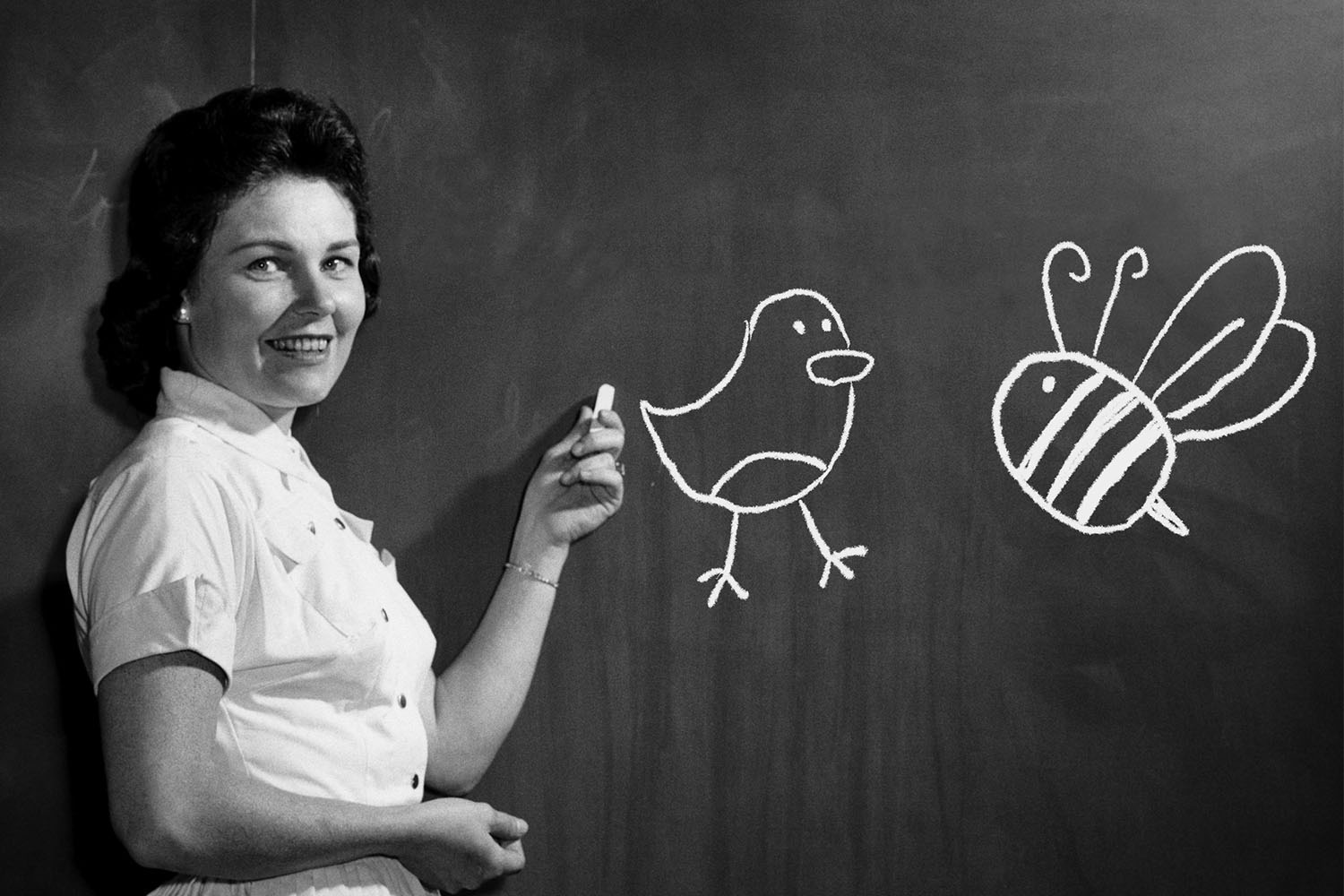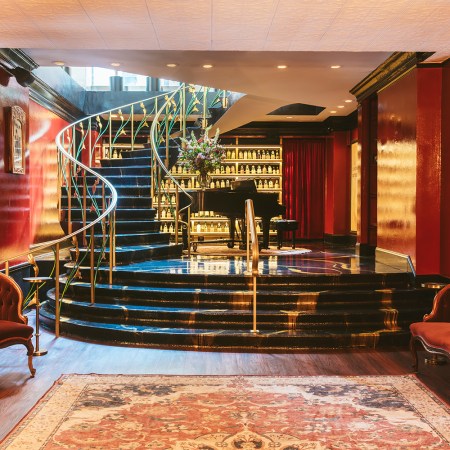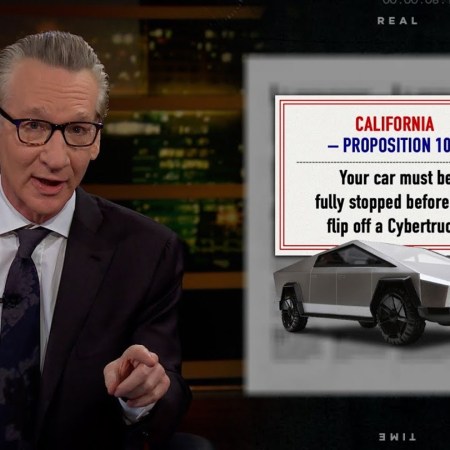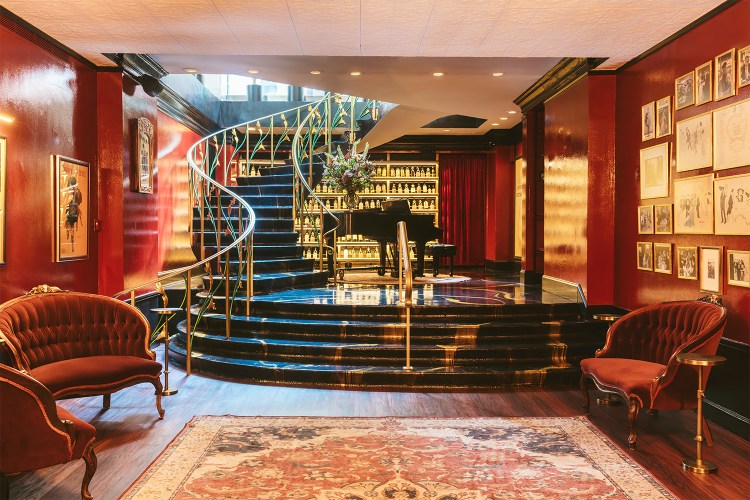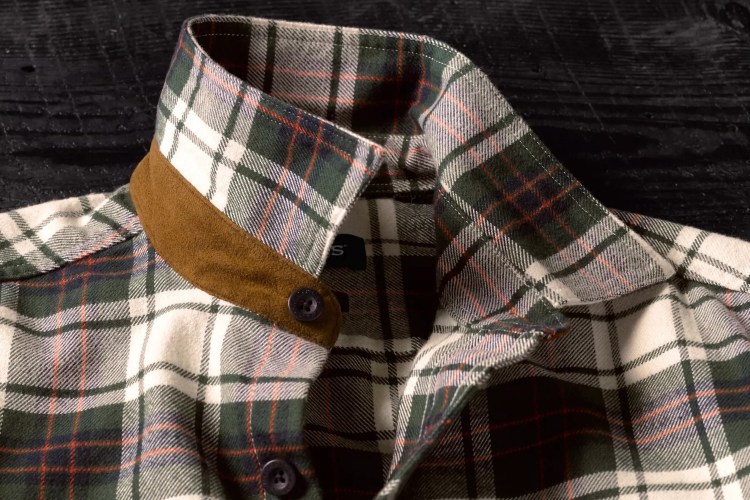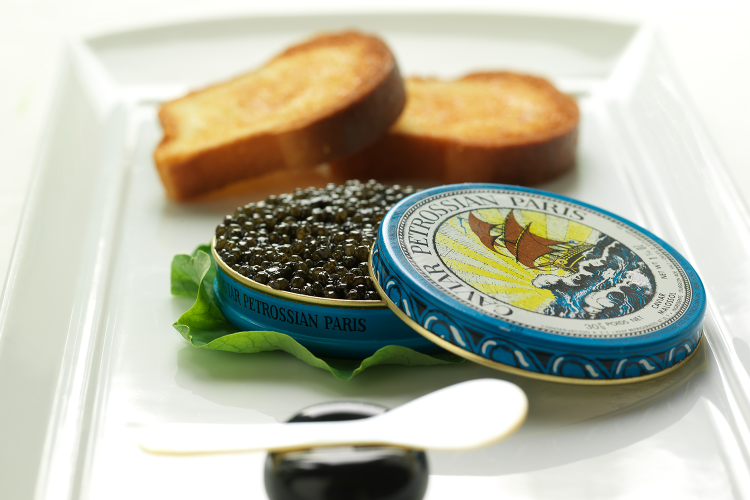At some point this year — probably June or July, according to most state legislators — coronavirus restrictions will ease and we will all re-emerge, like bears from their slumber, into polite society. To help you readjust, we’ll be sharing some advice on grooming, fitness, getting dressed in something besides sweatpants (but also sweatpants), how to manage your stress and mental health, dating, concert and bar etiquette, and more.
Last month at a bar in New York City, where more than 30,000 people have died from COVID-19 and lives are still claimed by the virus each day, a seemingly intoxicated guest walked in and told a bartender who was delivering drinks, “Let me hug you!”
The bartender, Meghan Kelleher, 37, backed up and said to the man, a complete stranger, “No hugs please.” Ignoring her, he carried out the act in full.
“I’m a cute girl so this happens to me a lot,” says Kelleher, who’s been in the hospitality industry since she was 18. “But it’s still unexpected when someone that you don’t know just assumes they can enter your personal space like that and touch you.”
As the man eased his embrace, Kelleher, who also teaches a consent training course for volunteers at the annual Burning Man festival, informed him, “You should really ask someone if they want a hug first.” She recalls the guy saying in response, “Why wouldn’t you want a hug?”
Perceived drunkenness aside, Kelleher is willing to award him the benefit of the doubt, assuming that he was vaccinated and was certain that she was as well. And as COVID-19 case numbers fall across much of the United States, Kelleher believes her surprise hugger was eager to experience human contact again, something with which, after the past year-plus of social distancing, she can empathize.
But in the wake of what’s often referred to as “the Great Pause,” handshakes as well as hugs have generally become something of a taboo. Conscientious of each others’ safety, we’ve either stayed away or supplemented traditional physical greetings with fist and elbow bumps. As we gradually enter a post-pandemic “new normal,” Kelleher and many others hope that the behavior recently on display at her job will occur less frequently or not return at all — at least, not without clearly issued consent.
To be clear, Kelleher “loves hugs.” Even in “the before times,” however, she has always called for consent. “You ask and then you wait,” Kelleher advises hug seekers. “If a person says yes, go for it. If they seem on the fence? ‘No worries.’” She adds that anyone denied hugs should not take it personally and, if consent is granted once, that doesn’t mean it lasts in perpetuity. Moods and mindsets, wants and needs are ever-fluid.
There’s certainly an argument to be made for keeping hugs around in some capacity. When a hug between two consenting parties is executed, both reap a series of health benefits. Psychologically, hugs boost interpersonal connectivity, happiness and self esteem, while calming stress, fears and anxieties. Hugs, which have been dubbed “the universal medicine,” also lower blood pressure, helping to fend off cardiovascular disease, the nation’s number-one killer. Somewhat counterintuitively, hugs can even keep people from getting colds.
For many individuals, though, hugs can also cause incredible discomfort.
“Don’t like them; don’t touch me,” says Tracey Carnazzo, 37, a podcaster and stand-up comedian, who’s also a self-described germaphobe and has been diagnosed with OCD. “I like a good wave hello.”
Carnazzo has been on the receiving end of unwelcome hugs many times, not only in social settings but work ones as well, usually after announcing a comedian to a stage while playing host.
“If I were in an office setting, I wouldn’t hug my boss hello,” she says. “I wouldn’t go over to my coworker and be, like, ‘Hey, I’m here. Get up. It’s time for hugs.’ So why in the entertainment industry are you hugging me when you’re my coworker?”
She adds that in many instances, as the host of a comedy show, another comedian “will just hug you a little bit too long, a little bit too tight” and says “that one extra second really makes a difference.” This behavior is less problematic for her when it’s a female hugger than when a man is the one issuing an unsolicited hug. Regardless, when a not-desired hug is forced upon her in front of a room full of people looking at her onstage, she feels cornered and extra tense.
“If you wouldn’t touch me in my privates then why are you pushing your entire body up against me?” she says. “We have to be pretty close for you to do that.”
She is okay with hugging friends — including this reporter, who in the initial stages of the interview worried whether he’d ever made Carnazzo uncomfortable — but she wants there to be a cultural “86 on hugs between strangers and casual acquaintances.”
Such a pivot would also end what she calls the awkwardness that comes with consent requests, and Carnazzo seems set on doing her part to change this social norm. Prior to the pandemic, she unwillingly engaged in hugs on a regular basis, but in the future she says she will actively avoid them, denying illicit hug perpetrators. She does believe, however, that more people will express greater understanding and respect for her boundaries.
There is evidence suggesting that, culturally, we will more widely take the Carnazzo approach to social interactions after the pandemic, much to the delight of medical experts.
Just a couple weeks after COVID-19 began compelling shutdowns in Western countries last year, Dr. Anthony Fauci, director of the U.S. National Institute of Allergy and Infectious Diseases, said, “As a society, just forget about shaking hands. We don’t need to shake hands. We’ve got to break that custom. Because as a matter of fact, that is really one of the major ways that you can transmit a respiratory illness.” It’s not a stretch to think Dr. Fauci feels similarly about hugging, which would put him in lockstep with former FDA associate commissioner Peter Pitts, who last year told CNBC that handshaking transmits viruses and germs “as swiftly as kissing and hugging.”
More recently, in an April USA Today article about handshaking and hugging people hello in our post-pandemic world, licensed psychotherapist Ashley Peterson said, “You don’t have to follow that social contract that has been set up of how you are supposed to greet people.” Peterson also added: “It would be helpful if (after the pandemic) we’re able to kind of recognize that we all don’t have to follow the exact same path of interacting with people.”
All these pandemic-driven discussions about consent come as #MeToo conversations continue throughout our culture as well. Among other dramatic social changes, that movement is inspiring schools to teach consent to kids as young as kindergarten age. So with the COVID-19 virus forcing us to be mindful of personal space and boundaries, more people are speaking the language of women who’ve been exploited and abused.
Still, as we reach the late stages of the pandemic, many are yearning for life to return to “normal”, or at least something as close to it as possible. Perhaps that’s precisely where the future of hugging should reside, as something we know and love, but has been altered slightly by the collective understanding that a hug given is a hug wanted — and consented to.
“After having such a long period of time after we’ve had to be socially distanced, I feel like people are going to be longing to go back to that, to a standard of connecting with people through a hug, something that feels familiar,” says Daniel Saynt, founder of the New Society For Wellness, a sex-friendly private members club based in New York. As he’s welcomed guests back into his establishment of late, he’s observed some people break down in tears over experiencing their first hugs in over a year. “There is an importance for people to incorporate hugging into more of how they connect with people,” Saynt says. “But it’s also important, obviously, to ask for consent and make sure you’re confirming that person wants to be hugged. In doing so, you’re going to help heal a lot of the damage and trauma that was caused over the past year and a half, and I think that’s very important for everyone to consider.”
To cut down on the uneasiness that may come with the consent conversation for some, there are few better spaces to look for tips than the play community. Tiana GlittersaurusRex, a polyamorous educator, sex work activist and entrepreneur in the intimacy category, says she’s observed a recent “uptick in people asking consent” for hugs, not just in the play world, but in general social settings as well. When the need for consent arises, she opts for some variation of, “Are you comfortable with a hug?” Her phrasing ranges from “Do you like being hugged hello?” to “Are you a hugger?” to “I’m a hugger, is that OK with you?” She adds that if people are uncomfortable with seeking consent through verbal means, then “universal arms out is a great way to” offer up a hug.
“I think the pandemic has been a valuable learning experience for those outside the enthusiastic-consent-forward communities about how to graciously accept rejection and understand that it’s not something personal, it’s more about that individual’s boundaries,” GlittersaurusRex says. “Everyone deserves their boundaries respected.”
Whether you’re looking to get into shape, or just get out of a funk, The Charge has got you covered. Sign up for our new wellness newsletter today.
